Coffee Watch Publications
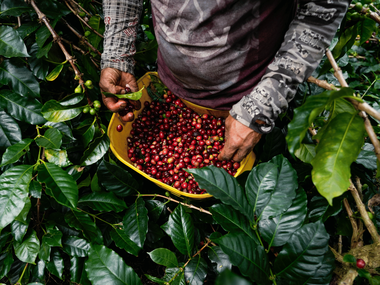

Stop Slavery-Tainted Coffee at the Border
Starbucks was dealt a double blow today as International Rights Advocates filed a U.S. lawsuit against the coffee titan alleging trafficking and Coffee Watch filed a petition with U.S. customs authorities asking the government to block imports from Brazil to the U.S. of coffee tainted by slavery and forced labor by top importers including Starbucks, Nestlé, JDE, Dunkin’, Illy, and McDonald’s. The petition could end slavery-tainted coffee imports to the U.S. from Brazil, a decision that would have significant consequences for Starbucks.
Exploitation and Opacity
A new report by Empower in collaboration with Coffee Watch and the Economic, Social and Cultural Rights Project, A.C. (ProDESC) titled “Exploitation and Opacity: The Hidden Reality of the Mexican Coffee in Nestlé and Starbucks Supply Chains,” finds that Mexican certified coffee marketed by Nestlé and Starbucks, is plagued by human rights violations, negative environmental impacts, and exploitative practices that trap small producers in Mexico in a cycle of extreme poverty.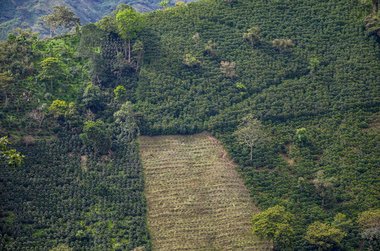
Dear MEP's: Don't Be Misled!
Today, Coffee Watch delivered a letter to relevant Members of the European Parliament urging them to stand firm in defending the EU Deforestation-Free Regulation (EUDR) against continued pressure from industry lobby groups. In February, Coffee Watch published a watershed paper highlighting how European and German coffee lobby groups attempted to derail the EUDR, citing feasibility issues. In contrast to statements from the lobby groups they are members of, numerous leading coffee companies—4C, Dallmayr, illycaffé, JDE Peet’s, Lavazza, Louis Dreyfus Company, Nestlé, Neumann Kaffee Gruppe, Olam, Melitta, and Tchibo—have recently explicitly affirmed their readiness to comply with the EUDR and their support for its objectives.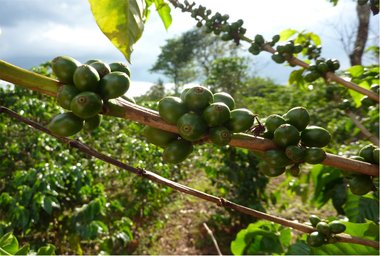
Coffee Deforestation in Brazil
Coffee Watch and AidEnvironment, release the first of a series of company deforestation risk profiles. These will form the basis of a new deforestation regulation Compliance Checker. It links incidents of deforestation, forest conversion, and human rights abuses to companies that import forest risk commodities into the EU such as coffee. The first company profile examines JDE Peet’s, one of the world’s largest coffee companies. The profile identifies six coffee farms in Brazil from which JDE Peet’s appears to be sourcing coffee. These farms are linked to what satellite mapping shows to be forest clearing. Crucially, the forest in question was cleared after the EUDR cut-off date of 31 December 2020. There is a high risk that sourcing from these farms could result in non-compliance with the EUDR due to the detected deforestation.
Get Deforestation Out of Europe's Coffee
This briefing provides separate lines of evidence for why it is vital that coffee be regulated by the EUDR, and why coffee companies seeking to undermine the EUDR or find excuses for non-compliance, should not be considered as neutral interlocutors articulating reasonable and data-driven arguments.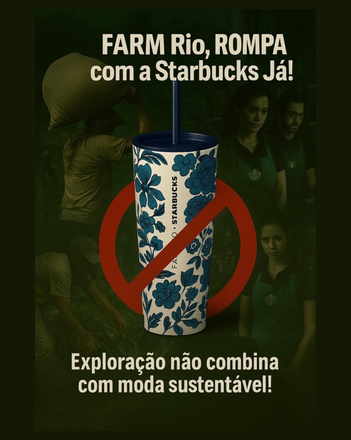
FARM Rio, Say No to Exploitation and Slavery!
Rio de Janeiro — Following a blockbuster set of legal actions alleging slavery-like conditions in Starbucks’ Brazil supply chain, a coalition of prominent nongovernmental organizations, labor unions, and human rights groups are demanding ethical Brazilian retail brand FARM Rio end its partnership with the coffee giant or make the partnership conditional on major reforms. Over a dozen organizations from around the world – including Coffee Watch, UGT Brasil, and CONTRACS, the retail workers union of FARM Rio – sent a letter to FARM Rio CEO Fabio Barreto Thursday detailing mounting evidence of serious human rights violations in Starbucks’ supply chains in Brazil and beyond — including allegations of slavery, child labor, and union busting.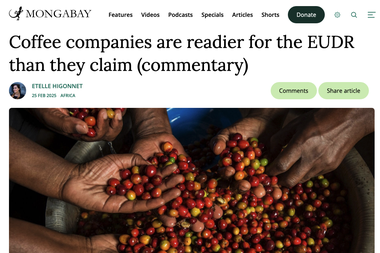
Coffee Companies are readier for the EUDR than they claim
Coffee Watch Founder & Director wrote an Op-Ed published by Mongabay. Major coffee companies and industry groups attempted to weaken the EU Deforestation Regulation (EUDR), delaying its implementation until 2025 despite its goal of curbing deforestation and human rights abuses. The EU’s coffee imports contribute significantly to deforestation, child labor, and slavery, with millions of workers trapped in extreme poverty and forests being cleared for plantations, especially in Brazil, Vietnam, and Indonesia. Despite industry complaints, compliance costs are minimal, and coffee supply chains are simpler than other regulated commodities; companies must take responsibility without shifting the burden onto vulnerable farmers and workers.
Coffee Prices Skyrocket From Decades of Deforestation
To save future coffee, adopting agroforestry is key.
Ally Publications
Deforestation Linked to Agriculture
This article shows that nearly 2 Mha of forest were replaced by coffee plantations between 2001 and 2015, of which 1.1 Mha were for robusta coffee and 0.8 Mha were for arabica coffee.
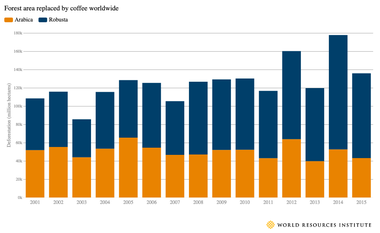
Bitter brew: Modern slavery in the coffee industry in Brazil
Despite repeated pledges to address the issue, major coffee brands are still failing to eradicate modern slavery from their supply chains. This report documents forced labour, debt bondage, and other abhorrent forms of exploitation in Brazilian coffee.
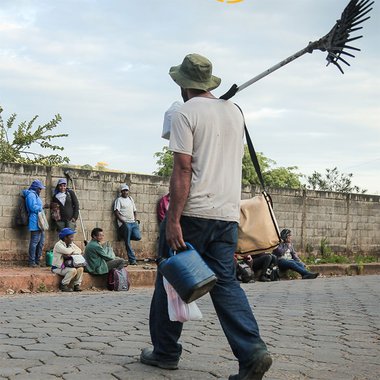
Syngenta coffee from farms with slavery-like working conditions
A subsidiary of the Swiss agrochemical company Syngenta, Nutrade Commercial Exportadora Ltd., and its associated brand Nucoffee, have repeatedly sold coffee from Brazilian farms where working conditions were similar to slavery.
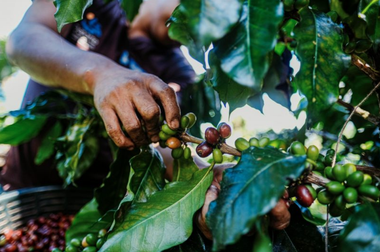
Starbucks: slave and child labour found at certified coffee farms in Minas Gerais
An exclusive investigation reveals cases of slave and child labor in Brazilian coffee farms holding the C.A.F.E. Practices certification, owned by Starbucks in partnership with SCS Global Services (also holding the UTZ seal).
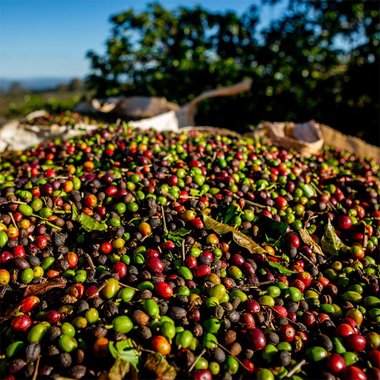
High hopes, low prices: How Nestlé is driving Mexican coffee farmers to ruin
Nestlé wants to be a leader in terms of ethical behaviour. However, Nestlé pursues a ruthless purchasing policy, particularly for its instant coffee. The farmers pay the price, as research in Southern Mexico shows.
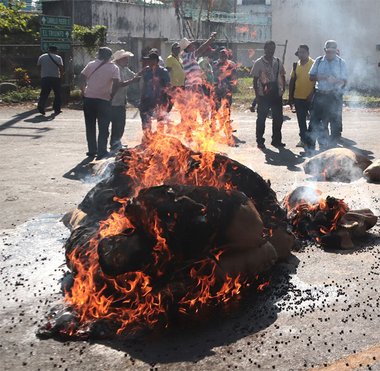
Journal Article: Impact of Pesticide on Health of Coffee Plantation Workers
This article in the International Journal of Novel Research and Development examines the health impacts of the use of chlorpyrifos (a common pesticide) on coffee plantation workers in India.


